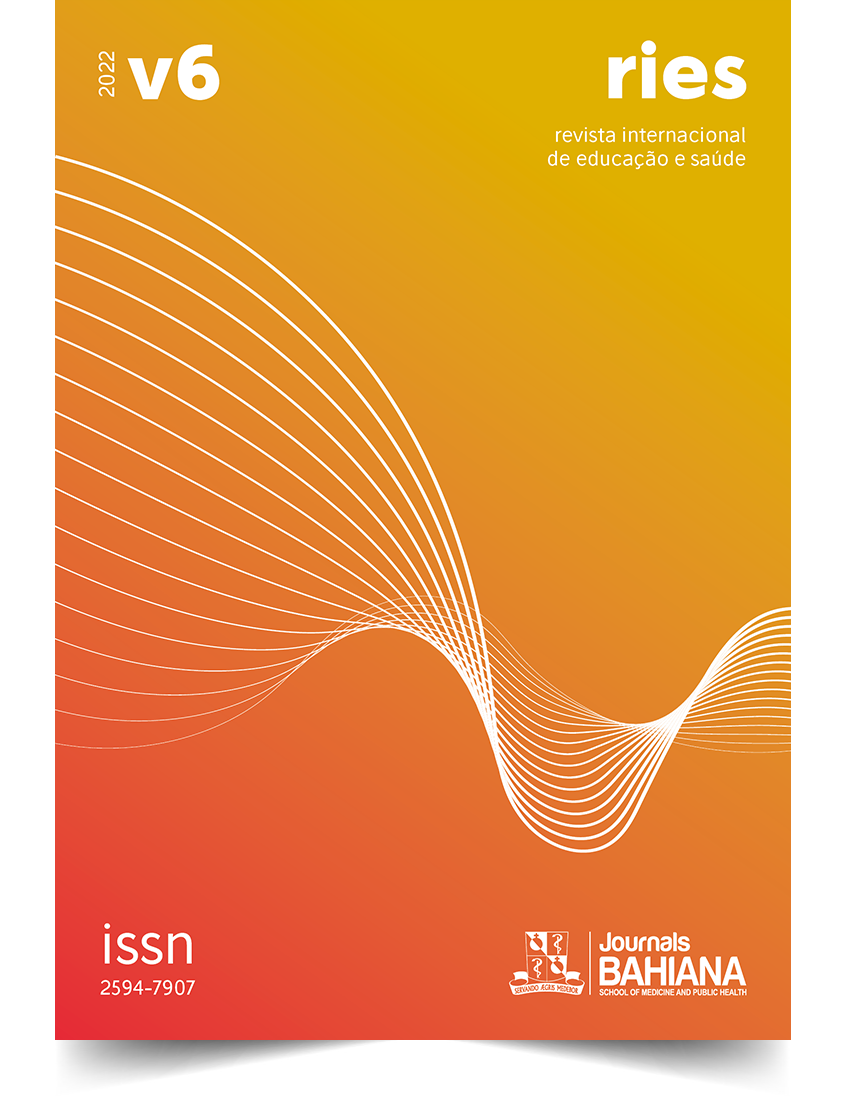Repensando a queixa principal do paciente, contribuições de pesquisas desenvolvidas por estudantes de medicina para o cuidado centrado na pessoa
DOI:
https://doi.org/10.17267/2594-7907ijeh.2022.e4407Palavras-chave:
educação médica, propedêutica médica, antropologia médica, assistência centrada na pessoa.Resumo
INTRODUÇÃO: Tradicionalmente, a anamnese, ou entrevista médica, é a principal ferramenta para se chegar ao diagnóstico de saúde e à intervenção terapêutica. As entrevistas médicas operacionalizam métodos clínicos e, portanto, uma teoria médica. OBJETIVO: Neste artigo, apresentaremos uma experiência de ensino e pesquisa dentro de uma disciplina de introdução à pesquisa. MÉTODOS: A partir de um relatório clínico elaborado para fins de investigação, um grupo de alunos e orientador analisou o papel da queixa principal para a assistência à saúde. RESULTADOS: Os alunos perceberam que o caso não expressava a queixa principal do paciente. Além disso, houve dificuldade em articular dados sociais e biológicos no relatório. Tais achados foram discutidos pelo grupo considerando a literatura sobre entrevistas médicas e o referencial da antropologia médica, a fim de ampliar a compreensão dos aspectos subjetivos e socioculturais do adoecimento. CONCLUSÃO: As discussões do grupo sobre o caso e a literatura possibilitou uma ampliação do entendimento dos alunos. Argumentamos que levar em conta as queixas principais pode revelar uma complexa gama de significados e teias socioculturais relevantes para compreender os conceitos e práticas de saúde de pacientes e seus grupos microssociais. Ao fazê-lo, esperamos contribuir para os debates em torno da educação médica e valorização dos aspectos socioculturais nas práticas de saúde. E, assim, enriquecer a relação cuidador-paciente em direção ao cuidado centrado na pessoa.
Downloads
Referências
(1) Stewart M, Brown JB, Weston WW, McWhinney IR, McWilliam CL, Freeman TR. Medicina Centrada na Pessoa - transformando o método clínico. 3a. ed. Porto Alegre: Artmed; 2017.
(2) Wenceslau LD, Fonseca VKT, Dutra LA, Caldeira LG. A patient-centered clinical interview script for medical undergraduate teaching. Rev Bras Med Fam Comunidade. 2020;15(42):2154. https://doi.org/10.5712/rbmfc15(42)2154
(3) Proença MA, Rosa AR, Cruvinel A, Müller MR. Sensitivy in medicine - a path from examination to listening, through the hand of narrative medicine. Diversitates. 2021;13(3):101-120. https://doi.org/10.53357/EQFA1825
(4) Borrell-Carrió F, Suchman AL, Epstein RM. The biopsychosocial model 25 years later: principles, practice, and scientific inquiry. Ann Fam Med. 2004;2(6):576-582. https://doi.org/10.1370/afm.245
(5) Kaplan-Myrth, N. Interpreting people as they interpret themselves: Narrative in medical anthropology and family medicine. Can Fam Physician. 2007;53(8):1268-1269. Cited: PMID: 17872832
(6) Midão CMV, Ruiz-Moreno L. Teaching the Medical Semiology at medical schools in the State of Rio de Janeiro. Rev. bras. educ. med. 2010;34(3):397-405. https://doi.org/10.1590/S0100-55022010000300009
(7) Ellery AEL, Bosi MLM, Loiola FA. Integration research, education and health services: background, strategies and initiatives. Saúde Soc. 2013;22(1):187-198. https://doi.org/10.1590/S0104-12902013000100017
(8) Bickley LS. Bates - Propedêutica Médica. 12a. ed. Rio de Janeiro: Guanabara Koogan; 2018.
(9) Porto CC, Porto AL. Exame Clínico. 8a. ed. Rio de Janeiro: Guanabara Koogan; 2017.
(10) Menéndez EL. Sujeitos, saberes e estruturas: uma introdução ao enfoque relacional no estudo da saúde coletiva. 1a. ed. São Paulo: Hucitec; 2009.
(11) Williams B. Case based learning - a review of the literature: is there scope for this educational paradigm in prehospital education? Emerg Med J. 2005;22(8):577-581. https://doi.org/10.1136%2Femj.2004.022707
(12) Kaur R, Kumar R, Sharma V. Case based learning as an innovative teaching tool. International Journal of Basic & Clinical Pharmacology. 2014;3(2):395-398, 2014. https://doi.org/10.5455/2319-2003.ijbcp20140428
(13) Nunes MO. From application to implication in medical anthropology: political, historical and narrative interpretations of the world of sickness and health. Hist. cienc. saude-Manguinhos. 2014;21(2):403-420. https://doi.org/10.1590/S0104-59702014000200003
(14) Kirmayer LJ, Rousseau C, Guzder J. Introduction: the place of culture in mental health services. In: Kirmayer LJ, Guzder J, Rousseau C. Cultural Consultation. New York: Springer; 2014. p. 1-20.
(15) Langdon EJ. The dialogues between anthropology and health: contributuions to public policies. Ciênc. Saude Colet. 2014;19(4):1019-1029. https://doi.org/10.1590/1413-81232014194.22302013
Downloads
Publicado
Edição
Seção
Licença
Copyright (c) 2022 Manuela Rodrigues Müller, Mariana Sawchuk Moura Marques Antunes, Pedro Puccioni de Oliveira Lyra, Julia Pinho de Mattos, Deisianny dos Santos Ferreira, Luiza Brandão Catharina, Julia da Matta Xavier Pinheiro Machado, Manuela Wendling Russo Lourenço , Luísa Leite Vaz da Silva, Victor Hugo Paixão Ximenes

Este trabalho está licenciado sob uma licença Creative Commons Attribution 4.0 International License.
Esta obra está licenciada com uma Licença Creative Commons Atribuição 4.0 Internacional.



